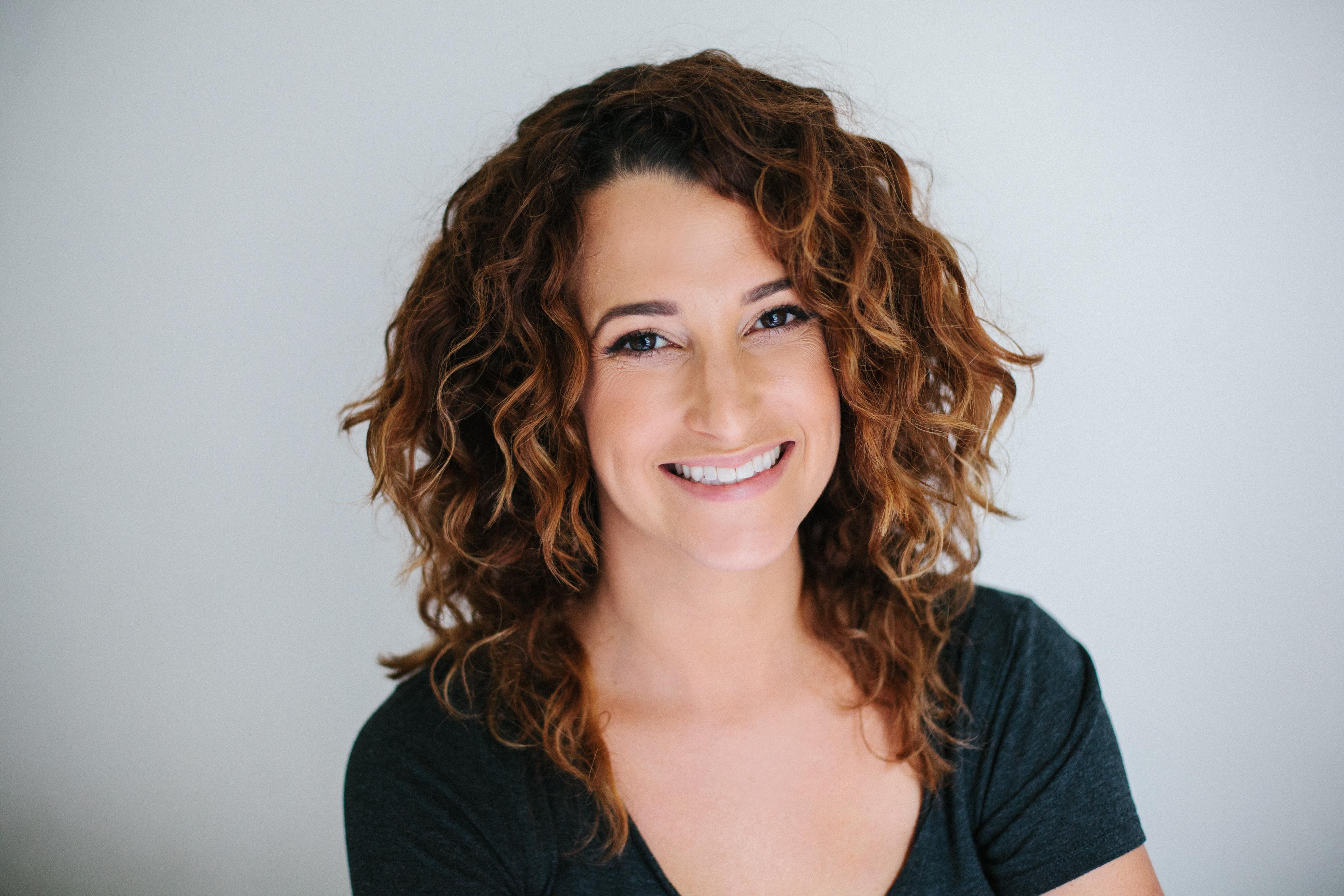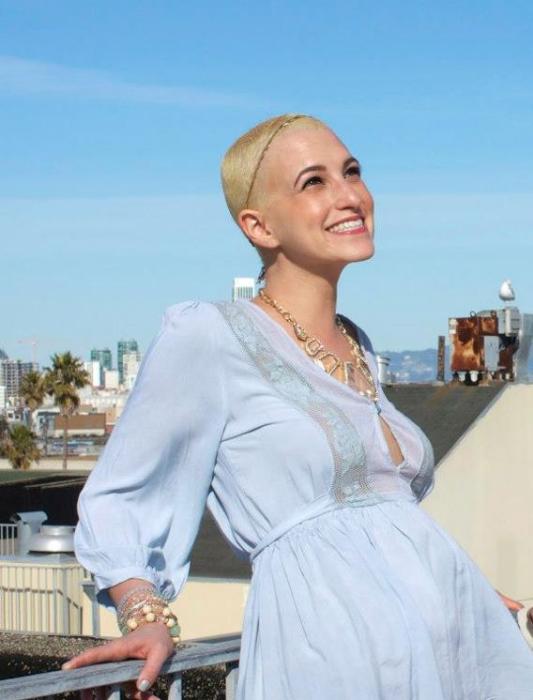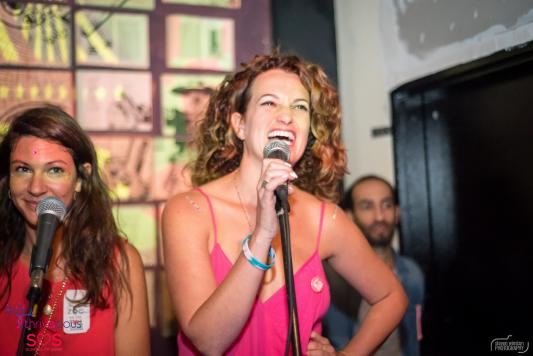
Learning the Meaning of BRCA
I had never even heard of BRCA until I was unexpectedly diagnosed with breast cancer at the age of 28.
I found the lump over Labor Day weekend in 2012. I had been doing an exercise boot camp and was massaging my sore shoulder when I felt something small and hard close to the armpit area. My first instinct was to dismiss it (28-year old people don’t get cancer, right?) but some little voice deep inside of me told me to get it checked out.
Three days and one biopsy later I got a call from my doctor while I was on a conference call at work: “You have breast cancer.”
The shock of the diagnosis was quickly followed by devastation as I learned that I would lose my hair and possibly my fertility. It was only when the results of the genetic testing came back (BRCA1+) that I learned I would also lose my breasts, and one day, my ovaries.
Learning More About My Family Health History
It turned out that the gene mutation was inherited from my father. Indeed, my paternal grandmother had gone through breast cancer twice - the first time at age 28.
The guidelines now say that anyone with a family history like that should be tested for these gene mutations, especially given the fact that I am also of Ashkenazi Jewish descent (1 in 40 Ashkenazi Jews carry a BRCA mutation.) But even as recently as 10 years ago, none of my doctors mentioned it to me.
After the initial shock wore off and I was able to grieve appropriately, I decided that I was going to do whatever I had to do to survive. I was going to beat cancer.
I learned more about resilience in that one year than in the previous 28 years of my life. I learned how to advocate for myself, how to ask questions, how to make life-altering decisions, and how to stay optimistic and level-headed in the face of a hurricane.
I was so excited on my last day of chemo, thinking that the nightmare was finally over. But as anyone who has had cancer can tell you, the journey doesn’t end when you finish your last round of chemo. Especially not when you have a BRCA mutation.

The first few years of survivorship felt just like that - surviving. There was the physical recovery: I had chronic fatigue, chemobrain, discomfort and scarring from my surgeries, and a really funky haircut.
But there was also the emotional recovery. Part of that was the fear of breast cancer recurrence (which, as I approach the age of 40 has now become a fear of ovarian cancer) and part of it was a major shift in my identity. I was now a cancer survivor. I had faced death, and while I may have won the battle my eyes were now open to the inevitable fact that one day, I will lose the war.
On the flip side, my reckoning with mortality made me realize how short life can be and how precious every moment is. Now I prioritize my mental and physical health. I quit my job as a lawyer at a big firm and transitioned into nonprofit management. I traveled the world and settled in Tel Aviv, Israel for 5 years, where I founded my own non-profit, Thrivacious, a cancer support community for English speaking women in Israel. I moved back to the US in 2018 to marry the love of my life and gave birth to our miracle post-cancer baby last year after a long struggle with infertility.
My cancer experience helped me be more resilient in the face of other challenges - like infertility, like the pandemic. I wanted to share that knowledge, and so I trained to become an executive and lifestyle coach. I’ve spent the past two years of my career helping dozens of professional women transform their own "WTF Moments" or major life challenges into purposeful, fulfilling, and healthy careers and lives.
Recently, I got some bad news: My father, from whom I inherited the gene mutation, was diagnosed with prostate cancer.
All of the feelings came flooding back. The trauma. The anger. How much more will this gene mutation take away from me and my family?
Thankfully, the cancer was caught at an early stage and my father recently underwent surgery. He knew he carried the BRCA gene because of me, and therefore he was getting monitored regularly for prostate cancer - something that is not typically done for men his age in the general population.

Finding Meaning
While what happened to me was in many ways horrible, there is some beauty in what my own tragedy has given someone else: Life-saving knowledge.
This year, I underwent a preventative salpingectomy (removal of the fallopian tubes), which is thought to reduce the risk of ovarian cancer but is still experimental. I just turned 39 and am trying to complete my family before removing my ovaries.
Some days, the anxiety gets to me. My timeline feels unjust. It is unfair that I will have to go through menopause early. It feels like there is a ticking time bomb in my body. What if I don’t do the surgery in time?
But then I remember what breast cancer taught me: None of us get to control how long we will live. But we can control how well we will live. So despite cancer, despite BRCA, that is how I live my life, authentically, on my own terms, present and grateful.
Get BRCA Answers
Think you or someone you love might carry a BRCA mutation? Genetic counseling and testing is recommended for individuals whose family and personal health histories point to an increased chance of a cancer gene mutation. To learn if you may be a candidate for genetic testing, take the BRCA risk factor quiz.
About Alona:
Alona Shaked is an Executive & Lifestyle Coach who shows women how to turn their major life challenges into purposeful, fulfilling careers and lives. Alona is also a breast cancer survivor (BRCA1+), IVF mama, writer, & women’s health activist. In her former professional life, she was a lawyer and non-profit executive. She founded her own non-profit, Thrivacious, a cancer support community for English speaking women in Israel, where she lived for 5 years after beating breast cancer. Alona received her B.A. in psychology from the University of Pennsylvania and J.D. from UCLA School of Law. She now lives in Philadelphia with her husband Oren, Labradoodle Franklin and miracle baby Ella.